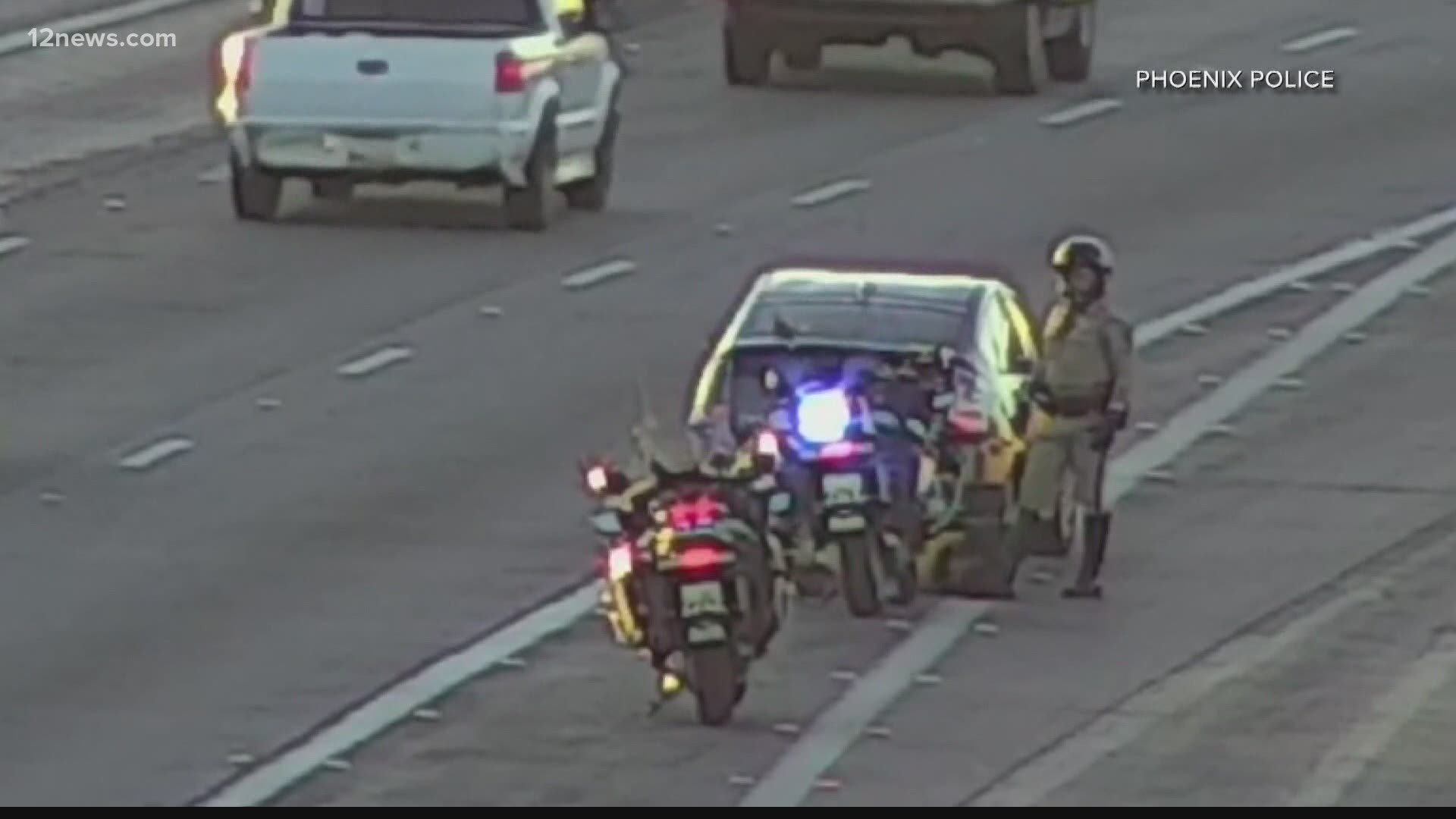PHOENIX — Just one year after the deadly shooting of Dion Johnson by a Department of Public Safety trooper, Arizona lawmakers are considering a measure to outfit DPS troopers with a body camera.
However, the proposal would also limit what recordings are made available to the public.
On May 25, 2020, Johnson was killed by a DPS trooper on Loop 101 and Tatum Boulevard. Officers were not wearing body cameras at the time.
An internal affairs investigation found no wrongdoing, and the Maricopa County Attorney decided not to prosecute the trooper. After deciding not to press charges, county attorney Allister Adell pushed for DPS to get body cameras.
The family has since filed a civil lawsuit, questioning the trooper’s version of events.
What would the legislation do?
In short, the bill aims to provide DPS officers with body cameras.
Currently, DPS has 150 body cameras in service. All of them are part of a trial run.
However, the legislation comes with restrictions.
“The question is for this government paid for footage, who gets to see it?” Rep. John Kavanagh said.
What are the restrictions?
Under the proposal, body camera footage may only be released if one of the following conditions are met.
- If everyone in the video, other than the officers, consents to be shown (or next of kin in case of someone being deceased).
- There is an important “public purpose” for releasing the video.
The legislation specifically mentions three instances where the video would serve an important “public purpose”.
- If there is an arrest that may result in time behind bars.
- An officer uses physical force.
- There is an allegation of police misconduct.
But there are exceptions even if a situation falls within the parameters.
Kavanagh said that DPS can still hold off on releasing video if they decided that the release would not “be in the best interest of the state.”
There are also exceptions for protecting witnesses.
If the incident happens in a private place, the legislation would require those in the video to be blurred unless that person gives their consent.
The measure would also not allow a video to be released unless the requesting person or group was able to provide a person involved, location, date and approximate time.
What does this mean?
“What they are trying to do is flip the presumptions of Arizona’s public records law,” Dan Barr, a Constitution and 1st Amendment lawyer said. “Our public records law is designed so the government doesn’t decide what is in the public’s interest.”
Barr said that the decision would often be left to decide what is releasable or not.
“DPS is going to decide what’s in its interest in many cases,” Barr said.
Kavanagh disagrees. He said that the legislation mandates the release of certain situations.
“Any police use of force, it’s released not debatable. Any allegation of police misconduct, released. Not debatable,” Kavanagh said.
There are exceptions under the proposal where DPS could avoid releasing the video even if it was a case of alleged police misconduct.
“That’s meant for really unusual situations,” Rep Kavanagh said.
The representative said that such situations could include protecting a witness or investigation or “that it’s so inflammatory that the police need a little time to mobilize police to deal with a possible riot.”
The bill provides no timeline on how long a department could hold off on releasing video if it could spark a riot.
“A slight delay for that purpose is very reasonable,” Kavanagh said.
“It will be much easier to say you can’t have this. And when you can have this. They are going to charge much higher fees," Barr said.
Kavanagh said that the proposal is meant to protect innocent people from being embarrassed or extorted.
He compared each officer with a camera to the show “COPS” and said the general public should have no right to see private, potentially embarrassing moments if no crime had been committed.
Kavanagh said the bill would also prevent people from using body camera footage of potentially embarrassing incidents to extort money from people.
When asked if there had ever been a situation in Arizona where that has happened, Kavanagh said that he did not know of one.
12 News and the Arizona Broadcaster’s Association is on the record as against this bill, because of the damage it could have on Arizona’s open records law.
Arizona Politics
Track all of our current updates with Arizona politics on our 12 News YouTube channel. Subscribe for updates on all of our new uploads.

